Recent camping and travel discoveries
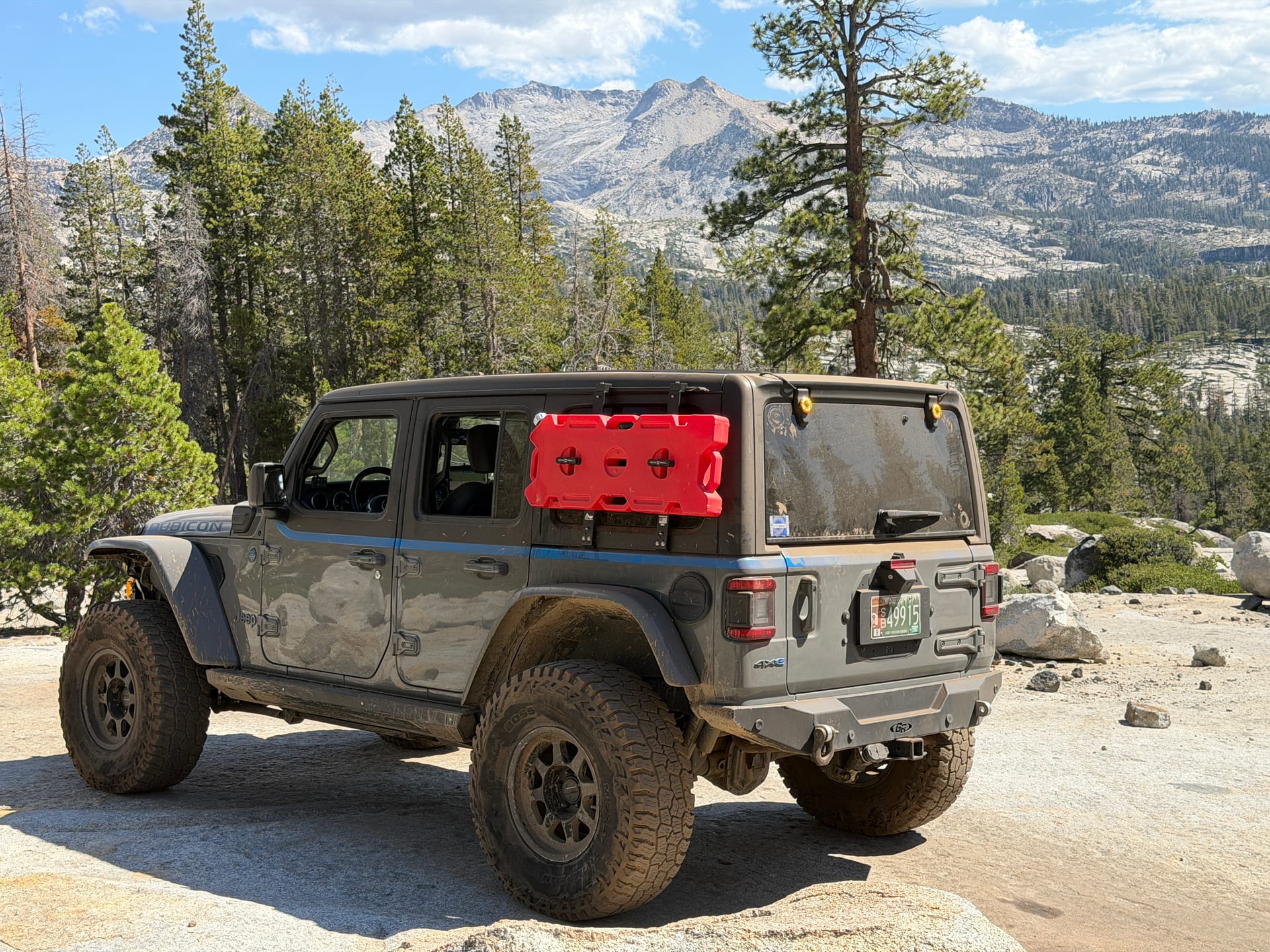
Let's be real: camping can be uncomfortable and unpleasant, which is why a lot of people don't do it. Sometimes, it even sucks, especially when it rains unexpectedly, so anything I find that takes the edge off of "roughing it" is welcome to me.
After a summer of camping and traveling around the western US, I wanted to highlight my favorite discoveries that truly made camping and traveling better.
An inflatable camp light
I bought a small, ten-inch long, inflatable, usb-c rechargeable light this summer for camping. It was about ten bucks on Amazon and the brand I bought currently only shows a 2 foot long version.
It's a small light that collapses into a bag, is quick to inflate to full size, and it can run for several hours on a charge over multiple nights. It's a soft LED that lights up and has two levels of white light (high/low) and also red and red flashing options. It's even got a magnet on the back so if you're stopped on the side of a road you can use it as an emergency flasher by sticking it to your car.
It quickly became our inside tent nightlight after dark, as well as a soft lantern around camp. You could also use in lieu of a flashlight for trips to the bathroom without blasting out your night vision with a typical flashlight.
The small one I bought was cheap, super useful, and honestly was one of the best little camping upgrades I tried out this year.
Going all electric while camping
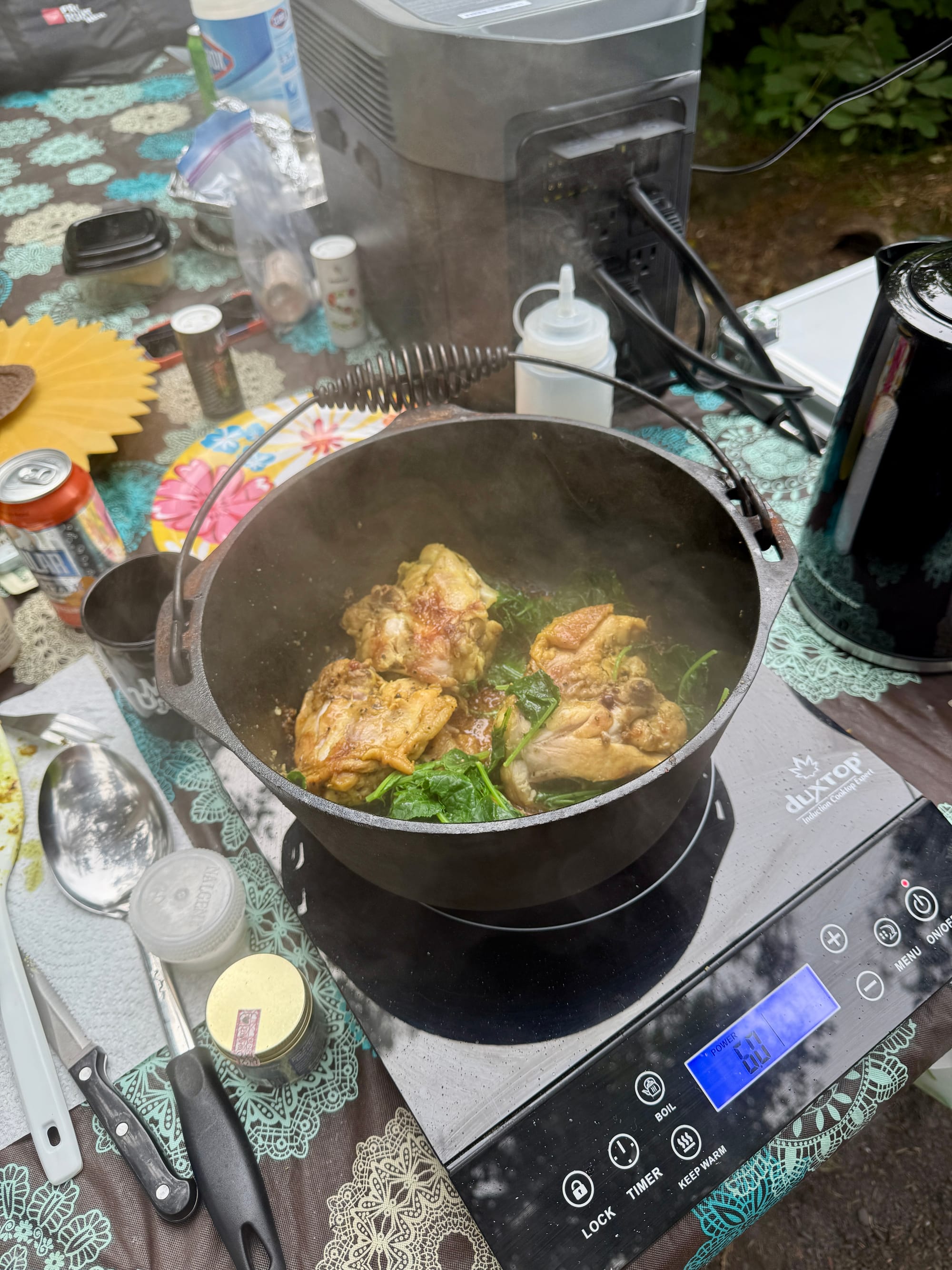
Everyone loves a campfire, but with increasing burn bans in effect in the mountains and forests, it's getting harder to enjoy a campfire safely and you can't always depend on it to cook. Personally, I‘m also tired of using up those green propane tanks on camp stoves, and wanted to try going full-electric on a trip.
The backbone of it all was my EcoFlow Delta 2 Max battery that packs 2kW of power. Next we used a Duxtop induction cooktop that America's Test Kitchen recommended for anyone wanting to test the waters with induction cooking versus gas. We grabbed a cheap plug-in kettle to boil water for our drinks and to make hot water for washing dishes afterwards. My Iceco 20L fridge ran off the battery instead of having to pack ice in a cooler. We also had good luck with a Starlink Mini for internet in remote places with no cell signal.
Overall, the best experience we had was in the photo above, at an Oregon state park on the coast because it had a power plug available in our campsite, which kept our battery topped up at all times. On more remote trips, I tend to get 2-3 days of heavy use per full charge. Ideally, if you drive your car a bit each day to a trailhead or into town to get supplies, you can recharge the battery as you drive in a couple hours. For a battery of this size, solar wasn't optimal in my experience, as my 150W panel would take many hours to refill the battery completely.
Overall, getting instant hot water within 5 minutes, cooking killer chicken and potatoes in a dutch oven on the induction, having cold food and drinks that weren’t covered in ice water, and being able to upload photos to the cloud during the trip were all amazing creature comforts made easier by all-electric camping. It's also a bonus when you're not burning gas while cooking—if you get stuck in a rainstorm, you can safely cook inside your tent on induction since it's entirely free of dangerous fumes.
Optimum sleep while car camping
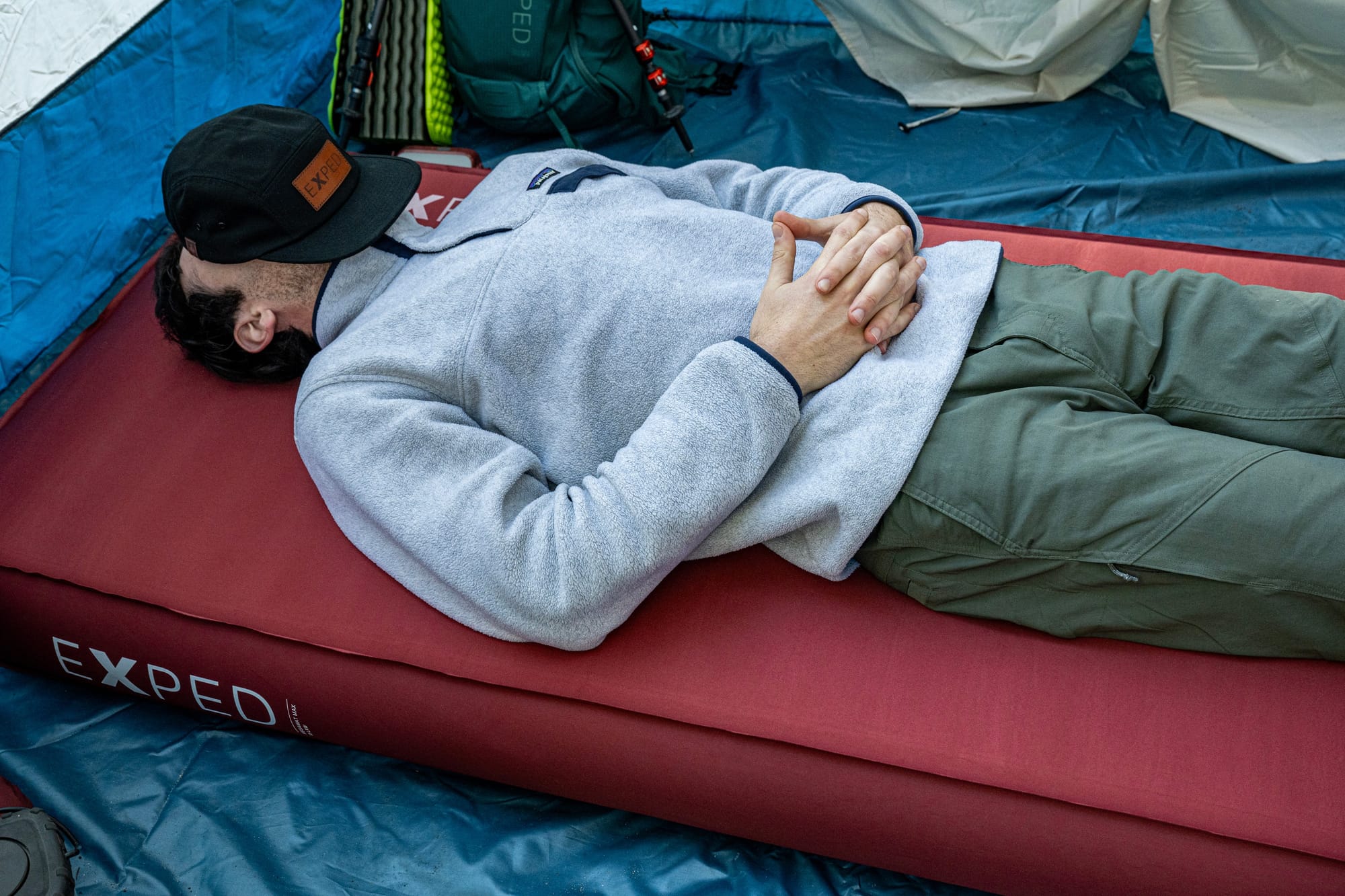
I had some bad nights sleeping outside this summer so I decided to go down the reddit rabbit holes of what was possible and I landed on the Exped MegaMat Max sleeping pad. It's a large, wide, 5" thick inflatable mattress and it's the first outdoor experience that truly came close to feeling like my home mattress. On my last trip using it along with Exped's sleeping bag designed for it, I got great sleep while out in the wilderness for the first time in years. The Exped mattress isn't cheap, but I will say it's worth the price and it'll be what I take car camping from here on out.
Another tip: I used a down comforter instead of a sleeping bag on a different trip and really loved it. Sleeping inside a cocoon of a bag is unusual and I sometimes wake up with a cold leg dangling out or a twisted bag I have to unravel to get back to sleep, while a comforter feels much more natural, like sleeping at home.
Various small tips
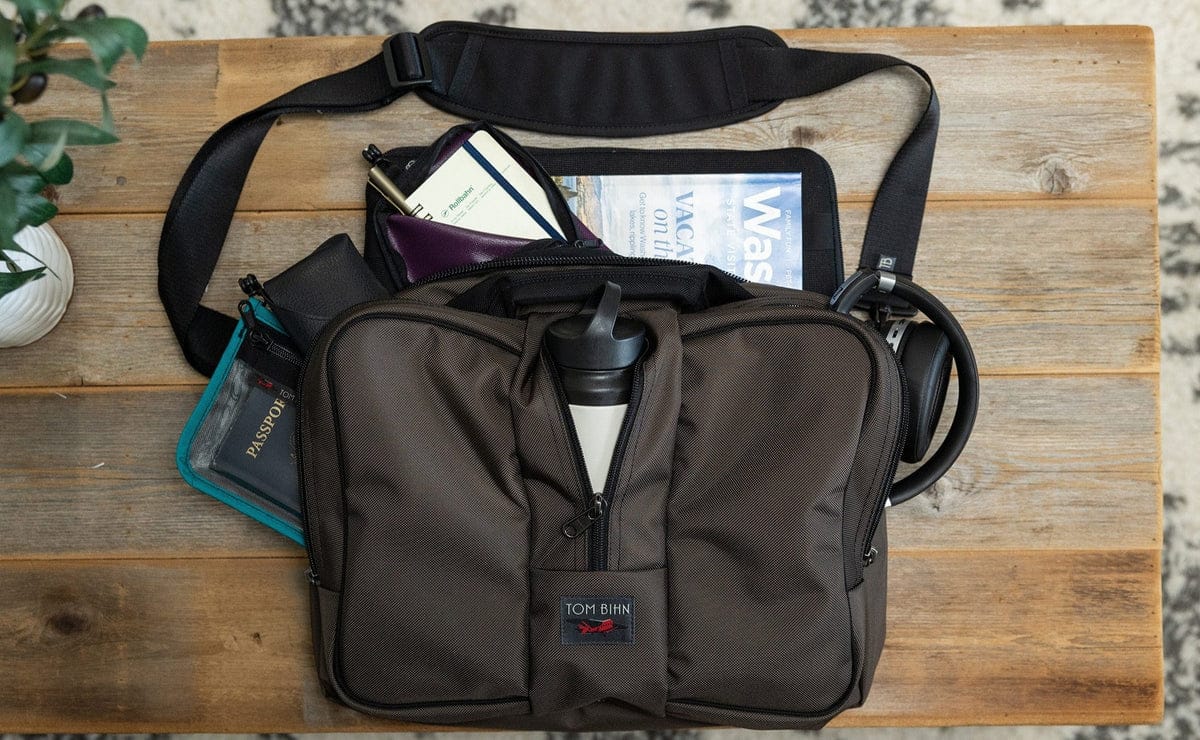
I finally followed advice I've heard for many years, which is: buy a small bag that is dedicated to your electronic items needed for travel, and keep everything in that bag, always.
I bought a Tom Bihn Copilot bag a couple months ago and I keep it stocked with a wall charger, two usb-c to usb-c cables, an Apple Watch charger cable, and a lightning cable. It has a slot for a water bottle and I toss in an iPad with downloaded movies along with my AirPod Max headphones before any trip. It's a great carry-on for flights and it's easy to stash in my car on road trips. I don't know why it took me so long to finally set up a dedicated travel bag, but it's like having a dop kit always ready to go with a dedicated toothbrush, toothpaste, deodorant, hair stuff, and soap. Make a promise to yourself that you’ll never plunder a cable out of the bag when you're at home and it'll always be ready for any trip.
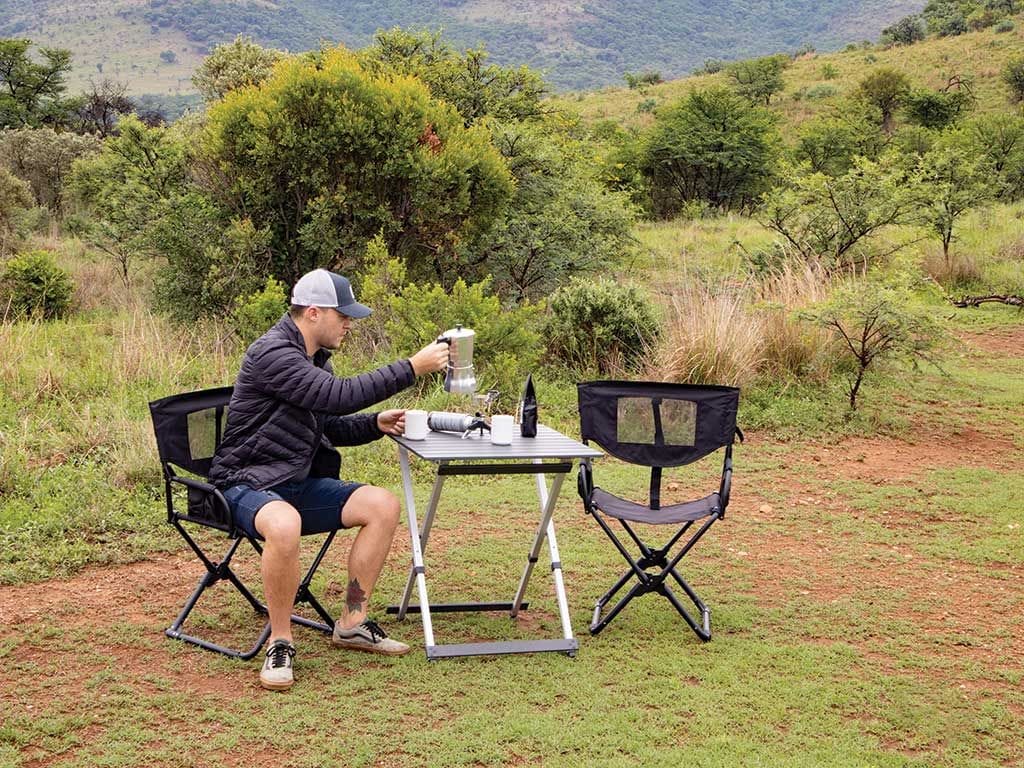
I feel like I spent the past ten years trying to find a folding camp chair that was comfortable, could be deployed in seconds, and was compact and not too heavy. I've tried every kind of cheap and expensive option before and eventually I fell in love with a pair of Front Runner Outfitters folding camp chairs along with its own storage bag and a small folding table that goes with it.
The chairs fold down small and pop out in seconds. They're comfortable directors-chair style seats and the table folds out instantly. I use these not only in every campsite but also for any picnics on the side of the road.
Another great thing to have on a camping trip is a hammock. You can find cheap, strong nylon hammocks with all the necessary straps for about $30-$40 these days from any outdoor store and I spent several summer afternoons happily swinging between two trees, napping, relaxed as could be.
Lastly, I highly recommend buying any knock-off version of a large YETI-style ice chest. On one trip this summer I was totally amazed that our $99 YETI knockoff plastic ice chest from Costco kept ice blocks and ice cubes frozen for 5 full days, even with frequent opening and closing of the ice chest to get supplies throughout the week. You can't beat physics, and having several inches of air gap between your cold stuff and the outside of your cooler is a total game changer.
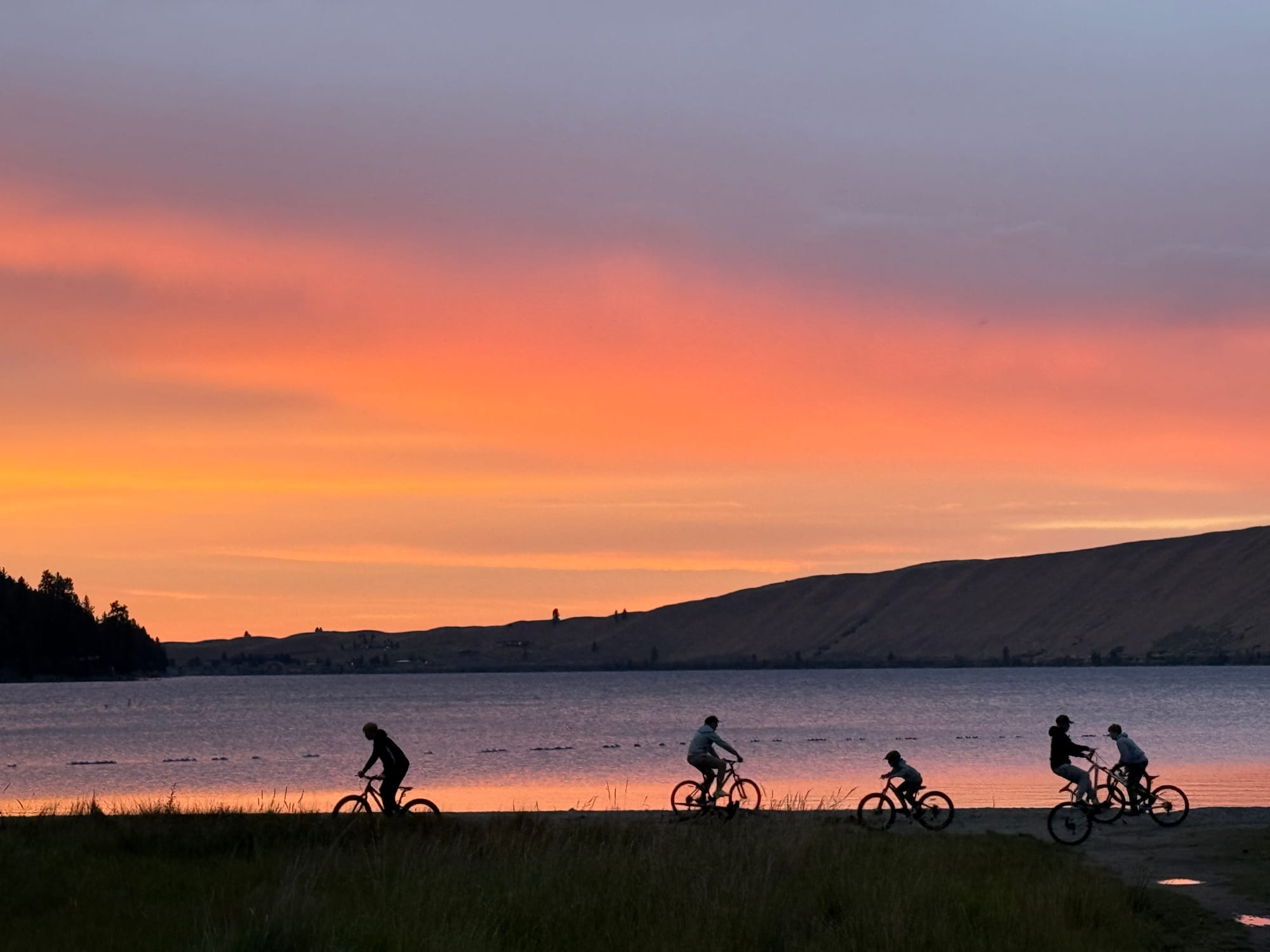
Subscribe to our newsletter.
Be the first to know - subscribe today

